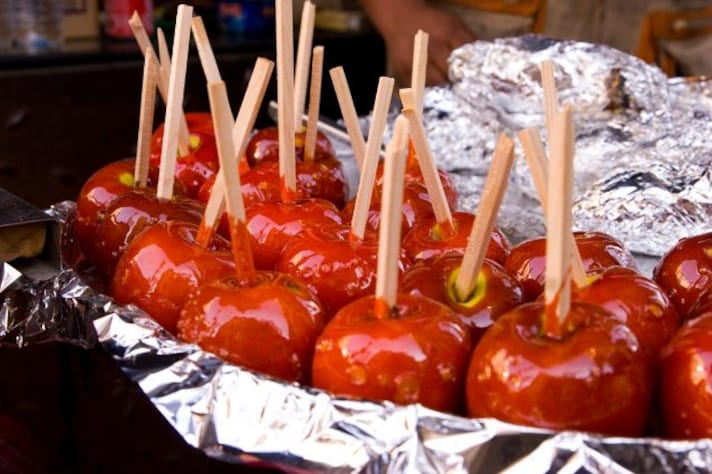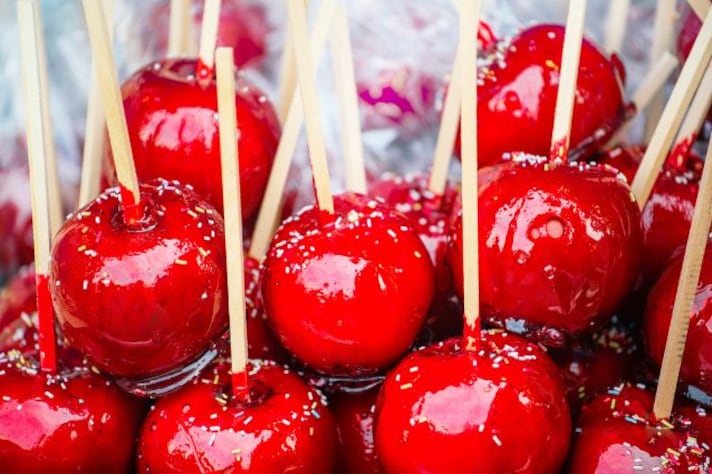
Halloween and caramel apples go hand in hand—there’s something about that glossy, caramel-coated fruit that’s irresistibly festive. But as much as they embody the spirit of Halloween, caramel apples come with a spooky side when not stored correctly. As delicious as they are, leaving caramel apples unrefrigerated can make them far more trick than treat. So, before you bite into this seasonal favorite, let’s explore why these tempting sweets can turn sour when left out in the cold (or rather, the lack of it).
Why Caramel Apples Need the Cold
It might sound odd, but apples and caramel don’t actually make the best of friends when it comes to storage. The caramel coating, with its thick, sticky layer, creates a seal that traps moisture against the apple. This can create the perfect environment for bacteria to grow if the apple is left at room temperature for too long. Even though the caramel seems protective, it doesn’t shield the apple from microscopic invaders. Refrigerating caramel apples is a must to keep them fresh and safe for snacking.

The Hidden Danger of Listeria
One of the most concerning risks of leaving caramel apples unrefrigerated is the potential growth of Listeria monocytogenes. Listeria is a bacteria that thrives in certain conditions and can cause severe illness, especially in vulnerable populations like pregnant women, young children, and older adults. Caramel apples, especially those left out at room temperature, have been known to harbor listeria in the space between the caramel and the apple skin. Even a well-washed apple can become a listeria host if it’s coated in caramel and left unrefrigerated for too long.
Aside from listeria, unrefrigerated caramel apples pose a general risk of food poisoning. Moisture buildup from the apple under that sugary shell can lead to bacterial growth, which can cause gastrointestinal upset. If you’re enjoying caramel apples, it’s best to store them in the fridge and eat them within a few days for maximum safety and taste.

Why Freshness Fades Faster Than You Think
While caramel might seem like it’s preserving the apple, the opposite can actually happen. The high sugar content of caramel can accelerate the natural decay of the apple’s surface once it’s been punctured by a stick. That stick is essentially a fast lane for bacteria, allowing them to get right into the apple’s core. Refrigeration slows this process, keeping your caramel apple fresher for longer and maintaining its taste and safety.
Practical Tips for Proper Storage
Aesthetic appeal aside, caramel apples are best served cold. Keeping them in the fridge doesn’t just protect against bacteria—it also helps preserve the texture of both the apple and the caramel, preventing that unpleasant sogginess that can develop when caramel sits out. While refrigerated caramel apples might not look quite as photogenic as their room-temperature counterparts, they’re much safer to eat, and they’ll keep their delicious flavor and crunch.
;Resize,width=767;)
